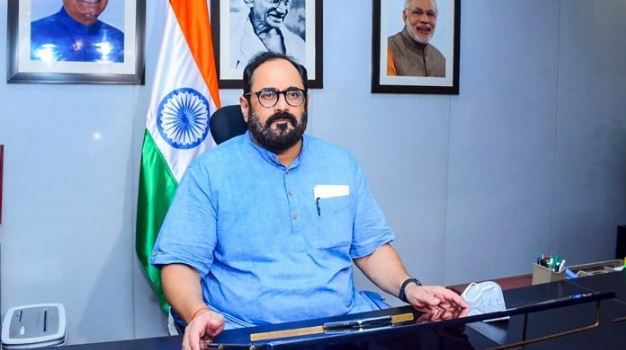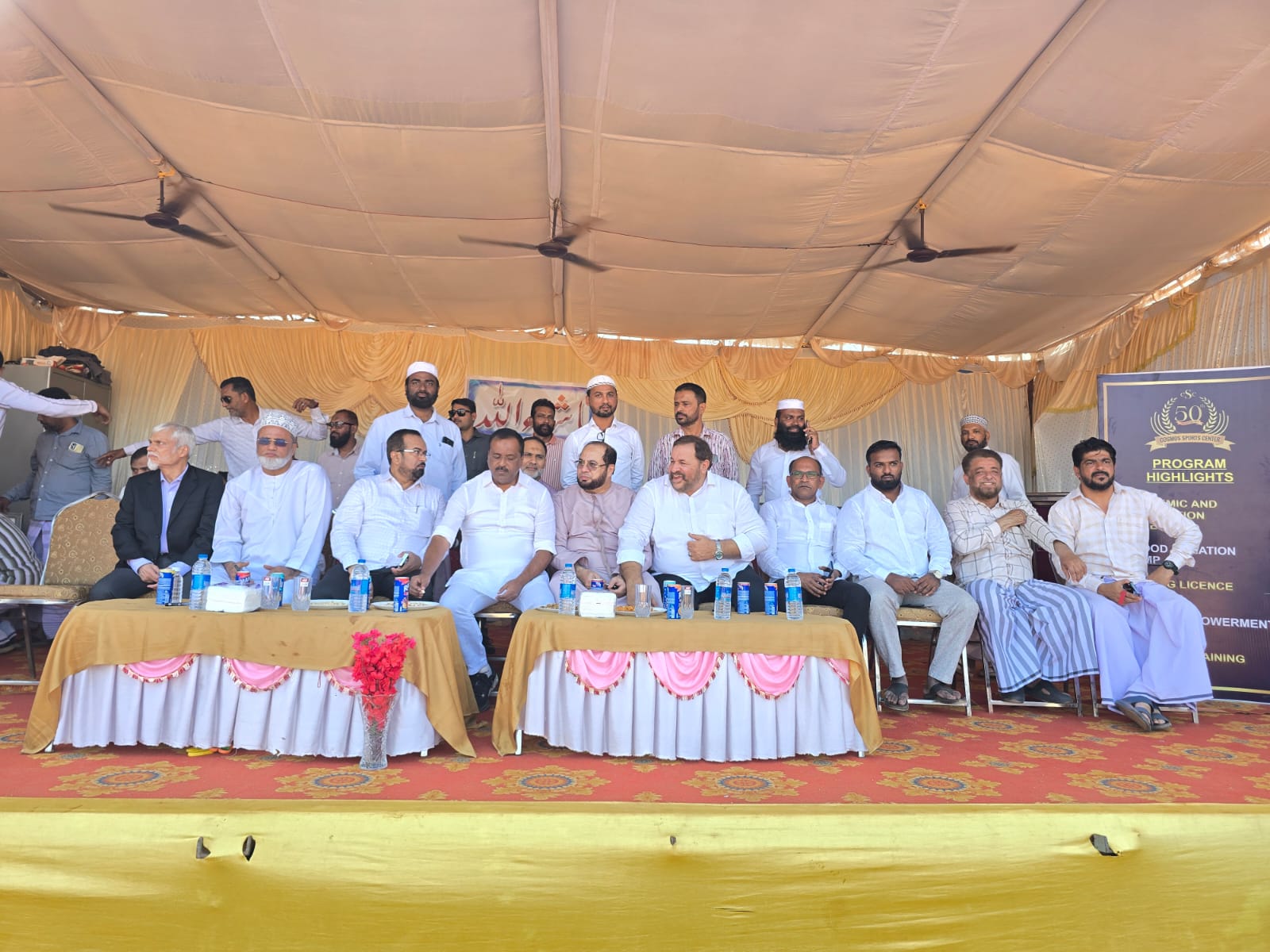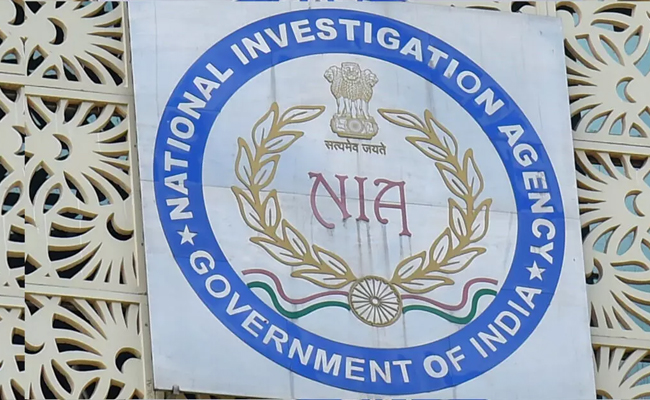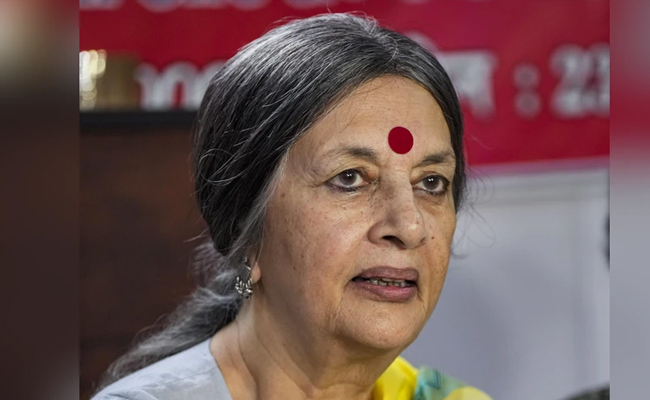New Delhi, Mar 9: The recent announcement of 300-acre Apple-Foxconn plant in Karnataka reflects the state's significant progress in electronics manufacturing, and will catalyse the entire electronics and deep-tech ecosystem, Union minister Rajeev Chandrasekhar said on Thursday.
Chandrasekhar noted that post-Covid as electronics global value chains are being re-shaped, India is becoming increasingly relevant not just in terms of designing but also for manufacturing cutting-edge technology and next generation products and devices.
The Minister of State for Electronics and IT was addressing the Deep Tech Summit organised by MeitY-NASSCOM Centre of Excellence (CoE) - IoT (Internet of Things) and AI (Artificial Intelligence), in Bengaluru, an official statement said.
After the Modi government took over, opportunities in the digital economy space have expanded rapidly and cover areas such as internet consumer tech, AI, data plus economy, electronics, automobiles and space.
"Under PM Narendra Modi government, deep tech, electronics and semiconductor sectors and designing and manufacturing of next-gen products and devices are going to be significant focus areas for our digital economy, startups and young Indians," he added.
Chandrasekhar referred to the 300-acre plant being put up by one of the Apple Inc suppliers, Foxconn, just outside Bengaluru and said it will open new opportunities for the youth and catalyse the electronics manufacturing and deep tech ecosystem in the state, the official release said.
The minister also highlighted the skilling initiatives of the government and the allocation of Rs 8,000 crore towards it in the Union Budget, and pointed out that talent inputs required to be an enabler for the expansion of the digital economy, have been put in place.
"In Karnataka alone, 18-20 lakh youth will be skilled for both blue-collar as well high tech, industry relevant and future ready jobs over the next three years," the Minister said.
Let the Truth be known. If you read VB and like VB, please be a VB Supporter and Help us deliver the Truth to one and all.
Mumbai (PTI): In view of Argentine superstar footballer Lionel Messi's visit to Mumbai on Sunday, the city police are implementing stringent security measures, like not allowing water bottles, metals, coins inside the stadiums and setting up watchtowers to keep an eye on the crowd, officials said.
The police also said taking extra care to avoid any stampede-like situation and to prevent recurrence of the chaotic situation that unfolded in Kolkata during Messi's visit on Saturday as thousands of fans protested inside the Salt Lake stadium here after failing to catch a clear glimpse of the football icon despite paying hefty sums for tickets.
Messi is expected to be present at the Cricket Club of India (Brabourne Stadium) in Mumbai on Sunday for a Padel GOAT Cup event followed by attending a celebrity football match. He is expected to proceed to the Wankhede Stadium for the GOAT India Tour main event around 5 pm.
"In view of Lionel Messi's visit to Mumbai, the police are geared up and have put in place a high level of security arrangements in and around the stadiums located in south Mumbai. Considering the chaos that prevailed in Kolkata and the security breach, we have deployed World Cup-level security arrangements at Brabourne and Wankhede stadiums," an official said.
Expecting heavy crowd near the stadiums during Messi's visit, the city police force has deployed more than 2,000 of its personnel near and around both the venues, he said.
As the Mumbai police have the experience of security 'bandobast' during the victory parade of ICC World Cup-winning Indian team and World Cup final match at the Wankhede Stadium, in which over one lakh cricket fans had gathered, we are prepared to handle a large crowd of fans, he said.
"We are trying to avoid the errors that occurred in the past," the official said.
There is no place to sneak inside the stadiums in Mumbai like the Kolkata stadium, according to him.
The police are also asking the organisers to provide all the required facilities to the fans inside the stadium, so that there will be no chaos, he said, adding the spectators have purchased tickets in the range of Rs 5,000 to 25,000. After paying so much of amount, any spectator expects proper services, while enjoying the event, he said.
The police are expecting 33,000 spectators at the Wankhede Stadium and over 4,000 at Brabourne Stadium. Besides this, more than 30,000 people are expected outside and around the stadiums just to have a glimpse of the football sensation, he said.
The organisers responsible for Messi's India visit recently came to Mumbai to discuss security arrangements. During the meeting, the Mumbai police asked them not to take the event lightly, according to the official.
After those requirements were fulfilled, the final security deployment was chalked out, he said.
Police has the standard procedure of the security arrangements inside the Wankhede Stadium, where people are barred from taking water bottles, metals objects, coins. Police are setting up watch towers near the stadiums and there will be traffic diversions, so that there is maximum space available to stand, according to the official.
Police are also appealing to the spectators to use public transport service for commuting and avoid personal vehicles to reach south Mumbai.
To avoid any stampede-like situation, police are also taking precautionary measures and will stop the fans some distance ahead of the stadium and public announcement systems will be used to guide the crowd. Barricades will be placed at various places to manage the crowd.
In case the crowd swells up beyond expectation, the police will divert people to other grounds and preparations in this regard underway, he said.
Additional police force has been deployed in south Mumbai to tackle any kind of situation, he said.





